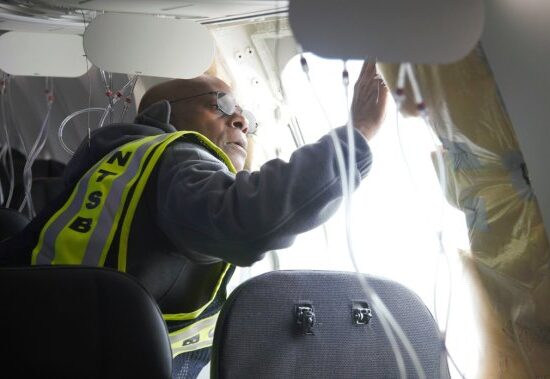
Filming is an exciting time for anyone ready to bring a project to life. When you go abroad, you may be struck by how different things are from home — and you might also want to build some time off into your schedule.
Before you board that plane, you must ensure you have everything you need for your project and yourself.
What to Bring
Your packing list for another country may seem endless. Here are a few of the major things you should consider that will upgrade your experience while filming abroad.
1. Paperwork
Before embarking on your journey, you must ensure you bring all your necessary paperwork with you. Your filming permit should be in the country’s language and your own if they are different. Release forms containing the consent of those being filmed should also be in the native language and translated if necessary.
Insurance policies and a contact list of your crew’s emergency numbers can also keep your mind at ease when filming. You need to know about potential risks so you can avoid them. Make sure to read any insurance policies thoroughly before agreeing to them.
Depending on the film, you may also need a release to prove you have permission to use music created by another individual. If you want to decrease the number of legal authorizations you need to obtain, try to compose your own music for your film, as you’ll automatically be permitted to use it.
Consider a carnet, which will allow you to transport your filming equipment more easily across borders if you plan on filming abroad a lot.
2. A Fixer
Your fixer will likely live in your destination country, but don’t set out until you have one hired. Hiring a fixer will solve many problems you might encounter filming abroad. They’ll be aware of any cultural differences you need to consider and can communicate with anyone you need to talk to. A fixer might be the greatest asset on your team, especially if you can’t speak fluently in your destination country’s official language.
3. Private Air Travel
Private air travel has value. It might be pricey, but the upgraded form of travel can add an air of professionalism to your project. You may have to choose your passengers carefully, as private jets typically carry between four and 20 people. However, it might fit the entire crew if you have a smaller team.
Chartering a private jet can motivate your crew and help you feel like your experience is much more real.
How to Act
Foreign cultures may have different customs from what you’re used to. You must know how to act properly to set an example for the rest of your team. You should research your destination before you set out, but here are some things you should prepare for no matter where you go.
1. Respect the Environment
No matter where you are, you should respect the land and its people. You should set an example for your crew by always respecting the local population and following the rules and laws of the country you film in. Make sure you are eco-friendly by picking up your trash and disposing of it properly.
Avoid making rude comments about anyone or anything. You never know when something holds value to someone else, so treat everything with respect — no matter who is watching.
2. Know the Language
Traveling is easier when you understand the language, and you might feel more confident and enjoy your time in the country more. You may not need to be fluent if you have a fixer, but you should still learn a few common phrases and conversational sentences to help you navigate things.
3. Remember Who You Are
You are a filmmaker and you are on this trip to create something magical — not to be a tourist. If you find yourself ahead of schedule or have a free day, allow yourself to enjoy the country you’re in. You need a break, but if you’re doing more relaxing than working, you’re not setting a good example for your team. Remember that you drive this project forward and people will follow your lead.
Mistakes to Avoid

It’s vital to pinpoint any mistakes that are easy to avoid. You’ll make fewer errors when you feel prepared for the experience, which will help you stick to the schedule better.
1. Not Looking Into Accommodations
Things sometimes work out differently than you plan, and you may need more time to complete your filming. If possible, try to extend the filming dates by a few more days to allow yourself the time you need to shoot. Talk to your hotel’s staff if you need to add more days to your stay. You might be able to book extra days during your initial reservation and receive a partial refund if you don’t use them.
Even if you cannot extend your stay for several reasons, try to work with what you have. Filming in multiple locations may require several hotels or villas. Look into lodging at every destination, as you shouldn’t just assume your crew can make it back to the host accommodation. Keeping everyone happy is one of the easiest ways to work on a tight deadline and will benefit your whole project.
2. Working Too Hard
You’ll have limited time in a foreign country to film, so you should work more than relax and see the sights. However, if you push yourself and your crew to your limits, nobody will look forward to completing the project. Make sure you allow plenty of time off for your team to immerse themselves in the country.
Finding a good work-travel balance can come from mapping everything in advance. Think of how long you’ll need to film in one location, then plan for however many days you need there. You should also plan for travel time. Once you have all your days planned out, make sure you add some time for relaxation. You could start filming later one day if you don’t need as much sunlight. Allow your crew to have memorable experiences so they look back on the project fondly.
3. Not Planning Ahead
You need a packing list to help you prepare for your journey, whether you’re venturing into the wilderness or filming exclusively in buildings. Start forming the list months in advance and write something down whenever you think of it.
It’s best to have this list on hand, so storing it digitally on your phone may be the best option. You may think of the big things, like clothes and equipment, but you shouldn’t forget the little things, like a portable steamer or headache medicine for long days.
Above All, Enjoy Your Time Abroad
Don’t wait until the last minute to start packing and planning for your trip abroad. Filming can take longer than you think, so prepare and have a streamlined agenda that leaves you plenty of working and relaxing time. This way, you and your crew will have a wonderful filmmaking experience.















